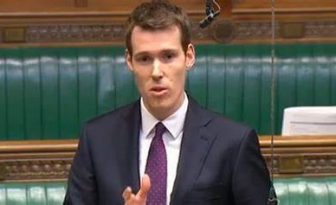
Long-awaited reforms to the leasehold system in England and Wales have been delayed for several months owing to “flaws” in legislation passed by the previous Conservative government, the housing minister has said.
Matthew Pennycook told the Commons yesterday it would take longer than expected to introduce reforms originally passed by the former housing secretary Michael Gove in the dying days of the last parliament.
Pennycock told the press that he remained committed to ending what he called the “feudal” leasehold system, which means homeowners have little say over the charges they pay or the way their buildings are managed. He promised to abolish the system before the next election.
Pennycook said: “We are determined to act as quickly as possible to protect leaseholders suffering from unfair practices, but we’re equally determined to take the time necessary to ensure our reforms are watertight and to the lasting benefit of leaseholders.
“We committed in our manifesto to finally bringing the feudal leasehold system to an end and that is precisely what the government is determined to do over the course of this parliament.”
Gove had long promised to end the system altogether, but ended up passing a more limited package of reforms, which included a ban on selling new houses under leasehold and making it easier for tenants to manage their own buildings.
Many of the measures in the Leasehold and Freehold Reform Act 2024 needed secondary legislation to be enacted, which Labour promised to pass quickly, but which Pennycook said had proved more difficult than expected.
The delayed measures include calculating how much tenants should pay to purchase their leases, which officials say was undermined by a loophole in the original law that would have left the government open to legal action.
Another problem is that many building managers do not themselves own the freehold and so would be unable to comply with the original act.
A third flaw in the previous bill, Pennycook said, lay in provisions to enable more tenants to vote for the right to manage their own properties. The way the bill was written, he said, would have led some building owners themselves to vote in any ballot, potentially cancelling out the votes of the inhabitants themselves.
“The very fact that crucial measures, including the new process for determining premiums, cannot be brought into force until we’ve legislated to fix a number of serious flaws in the last government’s act should serve as a warning about the risks of rushing these vital reforms,” he said.
The delay to the Gove reforms was welcomed by freeholders.
Natalie Chambers, the director of the Residential Freehold Association, said: “We welcome the government’s recognition of the complexities around implementing leasehold reform, as well as the serious flaws in the legislative approach taken by the previous government.”
Some leaseholders also welcomed the clarity provided by Pennycook’s announcement. Sebastian O’Kelly, director of the Leasehold Knowledge Partnership, commented: “Pennycook is a cautious, detail-driven minister, but five million people are now living in homes with a flawed tenure the government wants to ban.”
Others, quite understandably, expressed frustration at yet another delay.
Harry Scoffin, the founder of the campaign group Free Leaseholders, added: “This isn’t the insurgent government-of-delivery we were promised. Instead, we face burial under yet more consultations. Leaseholders will remain financial captives for years to come. Deep-pocketed vested interests benefit from these delays.”
Propertymark has highlighted the following future consultations.
Each consultation targets specific areas of concern and requires secondary legislation to ensure greater transparency and fairness.
+ January 2025 will see the commencement of the removal of the two-year restriction on enfranchisement and lease extension claims from the point of property purchase so that leaseholders will no longer have to wait.
+ In Spring 2025, the UK government commence the provisions on the Right to Manage which increase access to the right for leaseholders in mixed-use buildings, alongside reforming costs and voting rights.
+ No date has been set for the consultations on the details of the Act’s ban on building insurance remuneration.
+ Summer 2025 will see the consultation on the valuation rates used to calculate the cost of enfranchisement premiums.
+ 2025 is the only timeframe stated for a consultation on implementing the Leasehold and Freehold Reform Act’s new consumer protection provisions for homeowners on freehold estates, and on service charges and legal costs. However, these measures will be brought into force as quickly as possible after the consultation process, which is one thing the UK Government has, committed to.
+ Options to reduce the prevalence of private estate management arrangements to end the injustice of ‘fleecehold’ will also see a consultation released in 2025 with no specific date set.


Comments are closed.